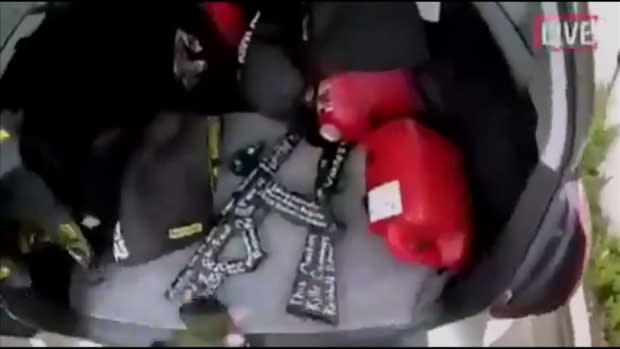Viral mosque shooting video raises questions about social media firms' responsibilities
The Facebook livestreaming and subsequent widespread sharing of a shooting that killed 50 people at two mosques in Christchurch, New Zealand, is raising questions about social media firms' abilities and responsibilities to stop their platforms from being used to propagate hate and inspire violence.
The attack during Friday prayers on March 15 was livestreamed on Facebook for about 17 minutes until police contacted the social media company to remove the video, Reuters news agency reported.
Philip Mai, director of business and communications at Ryerson University's Social Media Lab, said it does appear that the original video was taken down faster than in previous incidents like this.
But, he noted, it still took some time because it required police to intervene.
"By then, the damage has already been done," he said.
The video, 17 minutes long at its full length, was subsequently shared on various social media platforms, including Twitter, YouTube, Whatspp and Instagram despite police appeals not to share the videos and social platforms' reported attempts to stamp out circulating copies.
BuzzFeed tech reporter Ryan Mac reported that he was still seeing copies circulating 18 hours later.
Mai said social media sites are often able to remove content such as music videos that they believe violate someone's copyright far more proactively and automatically using artificial intelligence.
And Facebook announced Friday it was planning to use artificial intelligence to automatically flag "revenge porn" for removal.
"The technology's there," Mai said. "But for whatever reason, this kind of thing is not being flagged as quickly as other types of content."
He acknowledged live videos are unique and may be harder to detect and flag than content like music videos, but said there have been enough such incidents to program a computer to watch for certain patterns.
The alleged gunman used a smartphone app called LIVE4, which allows users to broadcast live on Facebook directly from a GoPro or other action camera.

The company that developed the app, VideoGorillas, told Reuters it does not view, analyse or store the content streamed using its app.
"The responsibility for content of the stream lies completely and solely on the person who initiated the stream," founder Alex Zhukov told Reuters.
The company posted a statement on its website Friday condemning the "disgusting use" of its app in the Christchurch massacre and offering condolences to friends and family of the victims.
"LIVE4 has zero tolerance towards violence. We will do whatever is humanly possible for it to never happen again," the statement said.
Need for regulation?
Putting in place a system to flag violent and criminal content, along with a process for people to appeal removal, and hiring humans to make the final call could be expensive, Mai said.
It's something companies may choose not to do if it isn't required by law, Mai said.
"I think that governments should be looking into laws and have a public debate as to what responsibility these companies have, what does society want from these companies and what do we need to impose on them?"
Stephanie Carvin, an assistant professor of international affairs who researches terrorism, told CBC News Network she thinks that governments should be asking more questions of social media companies and their role in making it easy to share extremist information.

While many social media companies have started taking Islamist extremist content more seriously and dealing with it, she said, "they've been far less willing" to do that with far-right extremism, and governments should ask why.
Policymakers and governments need to examine whether more regulations are needed to force social media companies to adhere to their standards on how to handle and prevent violent extremism and hateful rhetoric, said Carvin, of Carleton University's Norman Paterson School of International Affairs in Ottawa.
She said it was obvious the gunman in New Zealand "wanted to make a splash and bring us all into his very ... demented world view," and social media made that "easier to pass on this kind of information."

